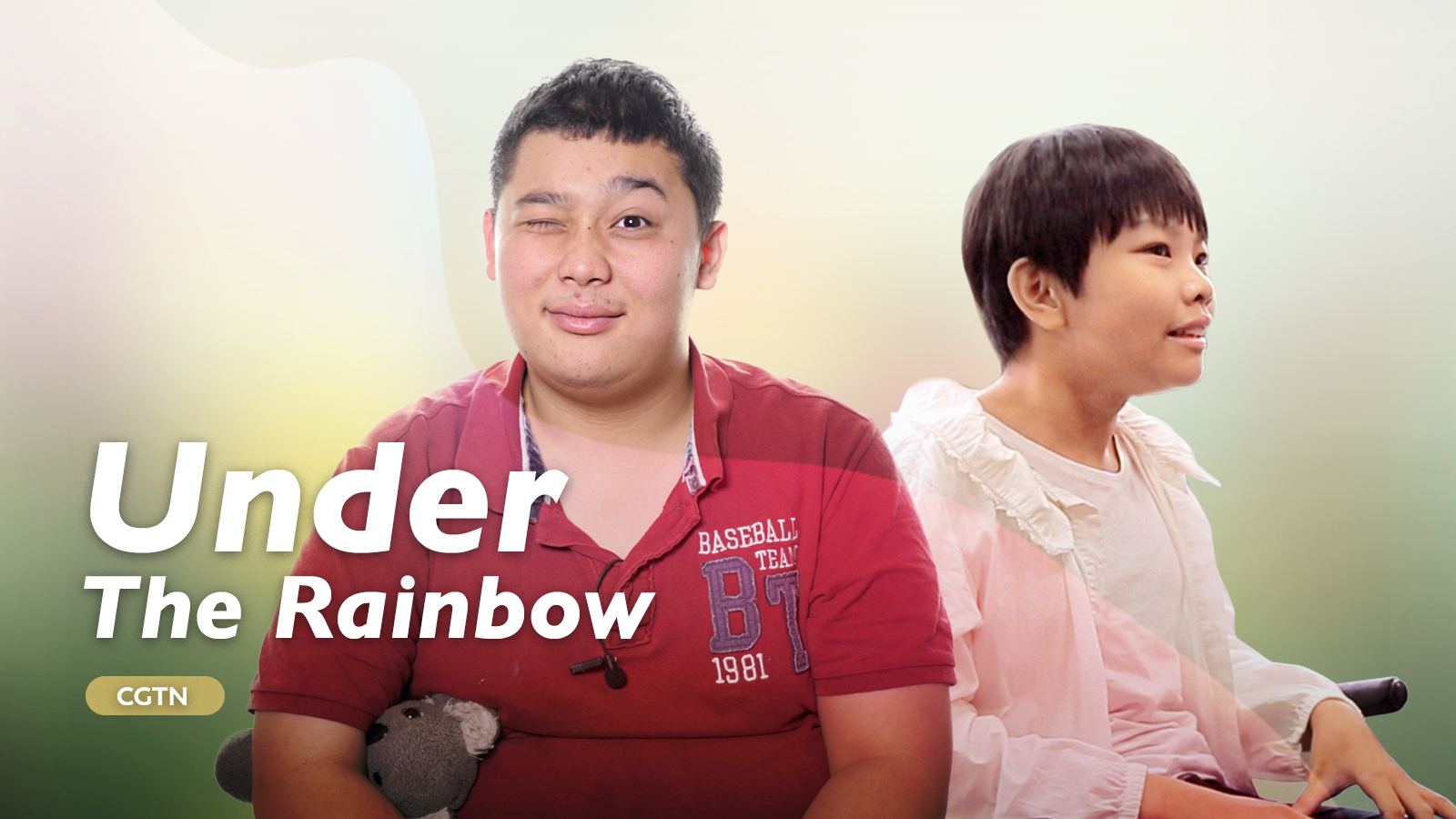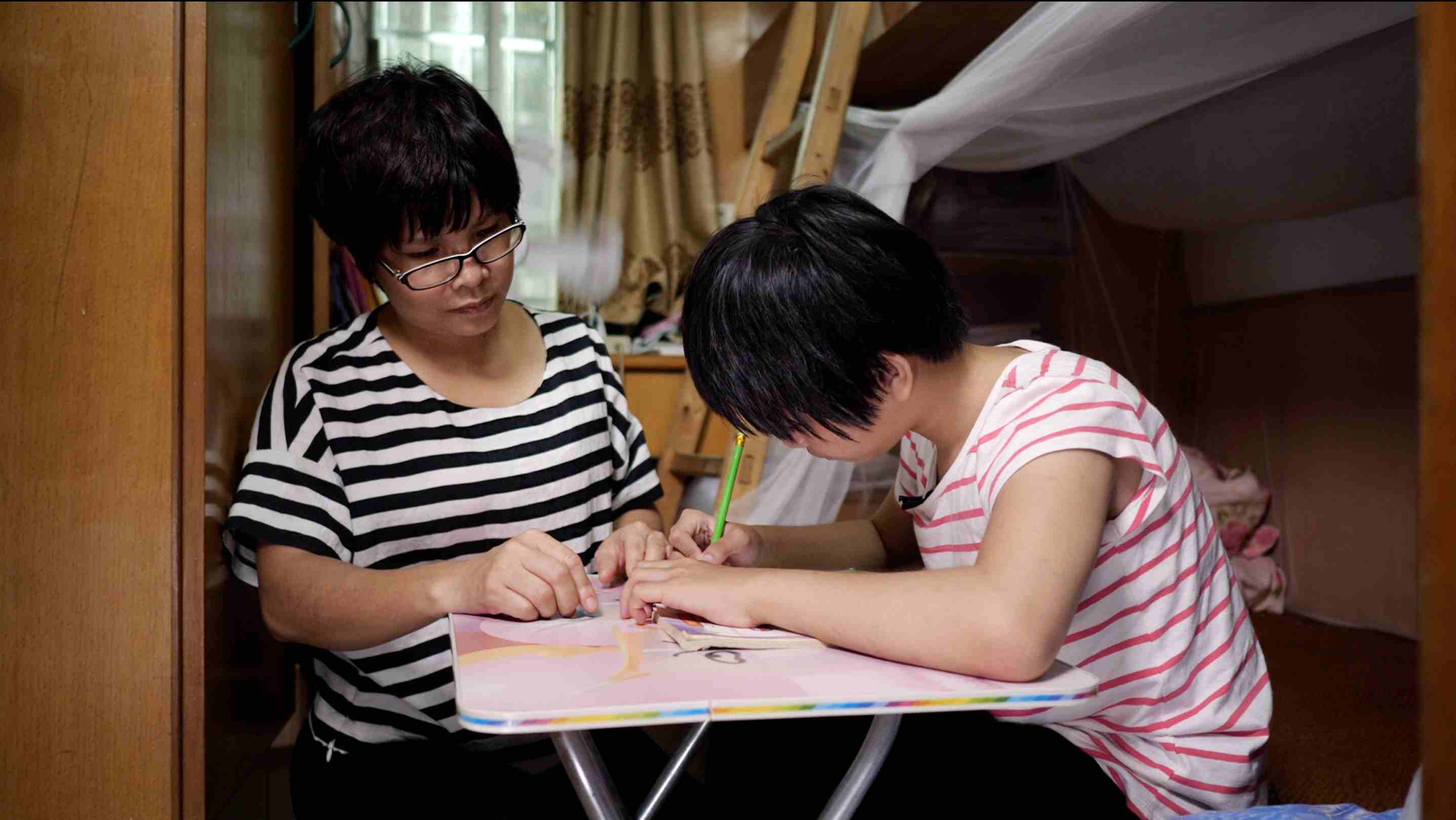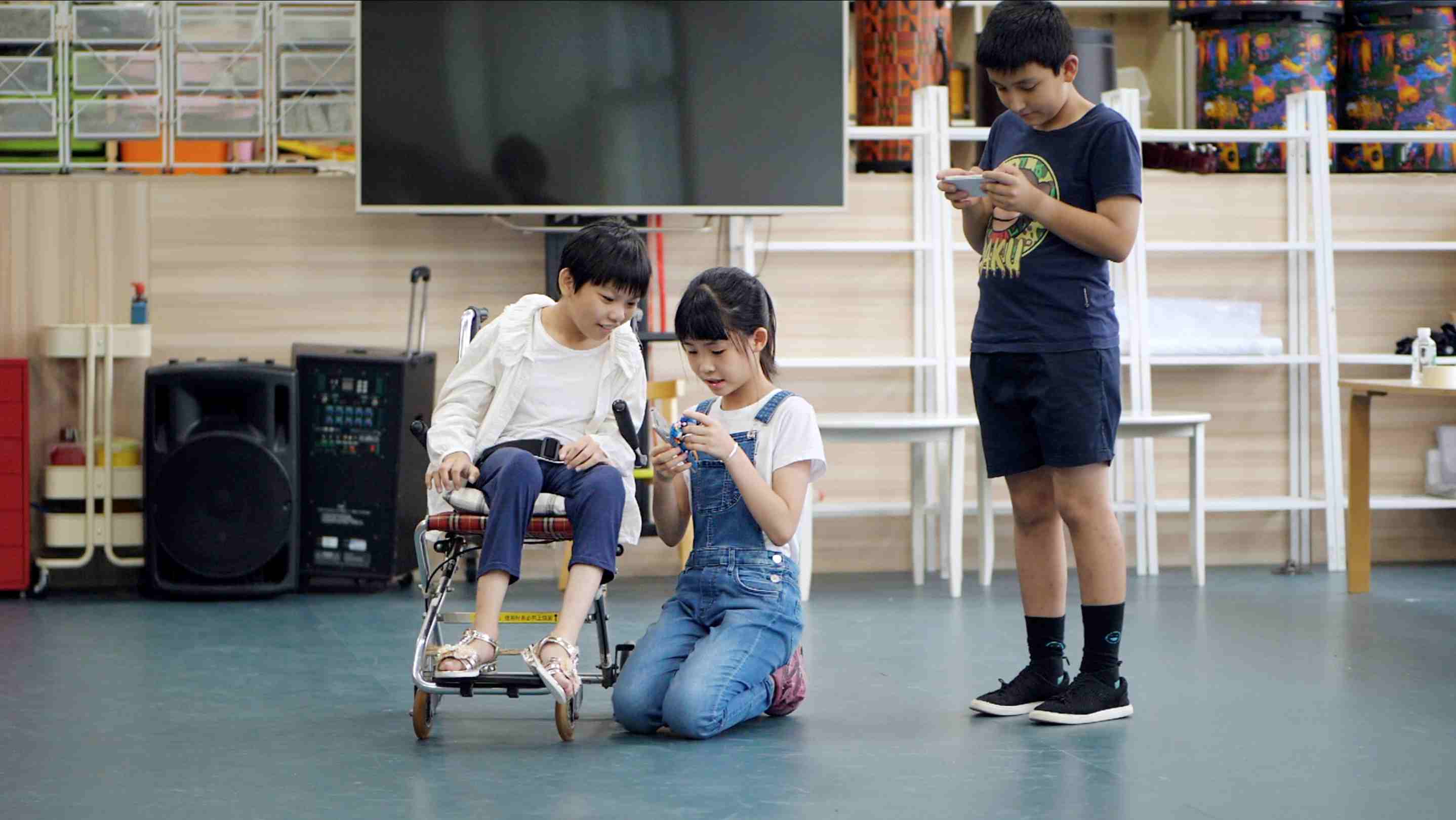
China
21:57, 24-Nov-2018
Sunshine Performing Arts' inclusivity brightens the lives of disabled children
Updated
21:04, 27-Nov-2018
Jiang Yuting
06:17

“May the road rise up to meet you;
may the wind be always at your back…"
The beautiful sound of singing could be heard coming from a classroom of Guangzhou Children's Palace on Saturday morning.
12-year-old Pan Yingxi slightly closes her eyes when she sings.
During break times, she laughs and chats with her friends and sometimes plays games on her phone.
Yingxi is in a wheelchair, but that doesn't stop her from enjoying the class.

Yingxi enjoys her time at the chorus./CGTN Photo
Yingxi enjoys her time at the chorus./CGTN Photo
Yingxi is a member of Sunshine Performing Arts' inclusive chorus.
The chorus is her escape from the hassles of her daily life.
In the group, she studies singing with dozens of other students – some of them also sit in a wheelchair, some need visual aids, some are autistic.
There are also non-disabled children.
Sunshine Performing Arts adopts inclusive education in its classes, which accepts children with special needs of all kinds and believes they should be able to learn alongside able-bodied children.
“We believe everyone has their own strengths and weaknesses,” said Guan Xiaolei, founder of the art group and the Department of Special education in Guangzhou Children's Palace.
'I wish to go to school'
There are over five million children with disabilities in China.
According to the National Institute of Education Sciences, in 2015, only 53.5% of all disabled children were placed in mainstream schools.
Moreover, data from the China Disabled Persons' Federation indicates that about 33 percent of children with disabilities do not complete all nine years of compulsory education.
Yingxi is one of those children. She has never been to a school.
She suffers from cerebral palsy and has trouble walking.
“I used to go to hospital for rehabilitation almost every day. It hurt and I cried,” Yingxi recalled.

Yingxi studies at home with her mother./CGTN Photo
Yingxi studies at home with her mother./CGTN Photo
She yearns for school, knowledge, and friends.
“We wanted her to have better education, but due to her disability and the lack of a local hukou (house registration system), no schools would accept her,” Zhong Jinling, Yingxi's mother said.
Now, the 12-year-old spends most of her time at home, studying basic primary school subjects with her mother.
A bridge to the outside world
In 2013, Yingxi joined the Sunshine Performing Arts chorus, and that opened a door for her.
“I am no longer alone. It has greatly changed my life,” she said, with her eyes shining.
For Yingxi, the art group is her only bridge to the outside world.
And that kind of connection is exactly what Guan Xiaolei wants from the group.
And that kind of connection is exactly what Guan Xiaolei wants from the group.
In China, the first high-profile experiments of admitting children with disabilities in mainstream schools began in the 1980s.
Later on, the policy of accepting children with disabilities in regular classes was given the name suíbān jiùdú (learning in regular classrooms).
Although special schools are tailored for children with severe impairments, students in those schools often get stuck in restrictive environments.
In the past few decades, a consensus on inclusive education has gradually been reached worldwide.

Yingxi plays with friends at Guangzhou Chilren's Palace./CGTN Photo
Yingxi plays with friends at Guangzhou Chilren's Palace./CGTN Photo
Moving from segregation to inclusion
China is also speeding up its reform.
In May 2017, China released newly revised regulations for educating people with disabilities, making general education the primary method and emphasizing inclusive education in mainstream schools.
But challenges still remain.
One of the problems is a lack of resources in schools.
In 2017, a report released by Save the Children, an organization for child development and protection, suggests that 60 percent of teachers in mainstream school have never received any training about how to teach students with disabilities.
“Many disabled children studying in mainstream schools are just ignored or forgotten in classes,” Guan Xiaolei said
Another problem is social stigma.

Yizhe, a member at Sunshine Performing Arts, paints in the Special Artist Workshop./CGTN Photo
Yizhe, a member at Sunshine Performing Arts, paints in the Special Artist Workshop./CGTN Photo
Another survey conducted by Save the Children in 11 cities shows that a large number of parents of non-disabled children don't want disabled children to study with their kids.
“Some parents would worry that their children might pick up bad behavior,” said Liao Yizhu, a special education teacher at Guangzhou Children's Palace.
However, Guan Xiaolei thinks these worries are unfounded.
“Non-disabled children can actually benefit more from studying with disabled kids,” Guan said. “They will learn how to care for others and how to express love.”
Inclusive education benefits all kinds of child, she believes.
The chorus is fulfilling for Yingxi.
Now, at home, she chats with her friends from the chorus via WeChat and records stories for apps on their phones.
“Our final goal is for her to fit into society,” Zhong Jinling said.
Director: Jiang Yuting, Li Tianfu
Film editor: Jiang Yuting
Filmed by: Qi Jianqiang, Jiang Yuting
Designer: Li Xiaojie
Article Written by: Jiang Yuting
Copy Editor: Josh McNally
Producer: Wen Yaru
Chief Editor: Xu Jian
Supervisor: Mei Yan

SITEMAP
Copyright © 2018 CGTN. Beijing ICP prepared NO.16065310-3
Copyright © 2018 CGTN. Beijing ICP prepared NO.16065310-3